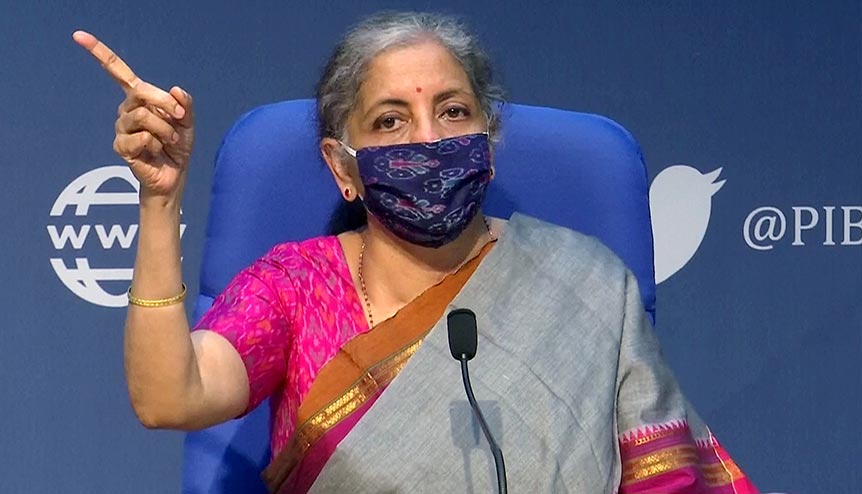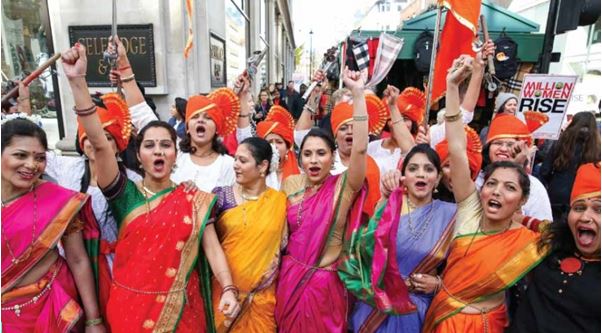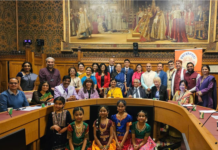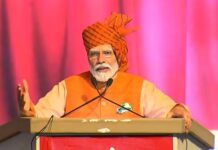The Indian economy could grow by an additional 60 per cent by 2025, if women were represented in the formal economy at the same rate as men. But that requires a paradigm shift apart from strong government support.
When Nirmala Sitharaman was appointed as India’s first full-time woman finance minister in 2019, little did anyone imagine that a year later she would be shepherding the country’s $3-trillion economy through the worst pandemic of a lifetime.
But under her stewardship, the Indian economy has weathered the storm remarkably – with a slew of bold reforms, projects and relief measures to tackle the coronavirus-triggered economic downturn in the country and progressively opening it up to more foreign investors.

Indian finance Minister, Nirmala Sitharaman is the epitome of what – according to the 2020 Indian Economic Survey – only 40 percent of women in India, between the age of 15-59 years, are capable of becoming.
Sitharaman has always been well known during her political career as an individual willing to face challenges head-on – and it is this trait of honest and strong-willed personality that led Indian Prime Minister Narendra Modi to appoint her as the Defence Minister in 2017. While Sitharaman’s acumen in handling the economic onslaught of the pandemic is frequently written about, it is often forgotten that it was she who authorised the airstrike on Pakistan’s Balakot terrorist training camp in 2019 as defence minister – the first time Indian warplanes had crossed the Line of Control in almost 50 years.
Her political role apart, in many ways Sitharaman is the epitome of what – according to the 2020 Indian Economic Survey – only 40 percent of women in India between the age of 15-59 years are capable of becoming.
Empowering women = good economics

The Council on Foreign Relations (CFR) estimated that the Indian economy could grow by an additional 60 per cent by 2025, if women were represented in the formal economy at the same rate as men.
According to the survey, more than 60 per cent of women in India in that age group remain engaged in full-time housework with no scope for professional work, corporate leadership or social roles. In 2016, a survey of the Ministry of Statistics and Programme Implementation found that women constitute only 13.76 per cent of the entrepreneurs in India or about 8.05 million out of the 58.5 million business founders. While the Indian government has launched a host of schemes to encourage women entrepreneurship, the numbers continue to be dismal and could pose a serious challenge to India’s aspiration to become a $5 trillion economy by 2025.
On the flip side, the Council on Foreign Relations (CFR) estimated that the Indian economy could grow by an additional 60 per cent by 2025, if women were represented in the formal economy at the same rate as men. Current estimates place India’s rate of female participation in the formal labour force at around 24 per cent – among the lowest in developing nations. The majority of Indian women work in the informal sector in jobs with limited social protections and low wages.
But what kind of action is needed to make that happen?
A Bain & Company Report 2020 on ‘Powering the Economy with Her’ suggests that encouraging entrepreneurship among women could create over 30 million women-owned enterprises which can in turn generate thousands of employment for women in India.
(Source:India Global Business)

Readers like you, make ESHADOOT work possible. We need your support to deliver quality and positive news about India and Indian diaspora - and to keep it open for everyone. Your support is essential to continue our efforts. Every contribution, however big or small, is so valuable for our future.












Totally agree. At microscopic level, it is easy to see in any market in India or bazaars how the local and often uneducated women run the show. They are hardworking, astute and efficient, same in any fishing village and if those who are more educated could be brought to fore on equal status whether teaching, engineering, medicine or financial services than sky is the limit